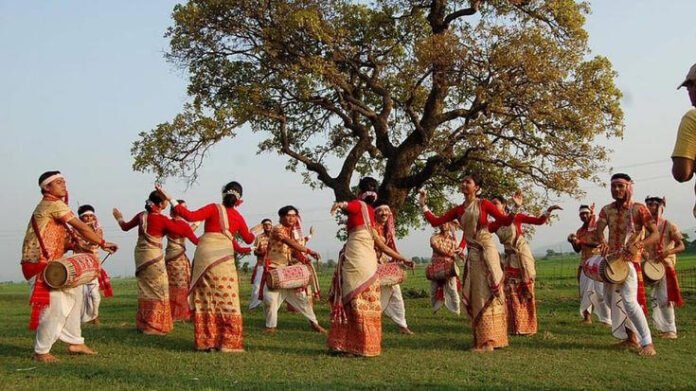Magh Bihu, also known as Bhogali Bihu, is one of Assam’s most anticipated festivals, celebrated with grandeur and joy across the northeastern state of India. Marking the end of the harvesting season in mid-January, Magh Bihu showcases the region’s rich cultural heritage, agricultural significance, and gastronomical delights. In 2025, the festival falls on January 15, bringing with it an air of festivity, unity, and gratitude for nature’s bounty.
Origins and Significance
Magh Bihu has its roots deeply entrenched in the agrarian traditions of Assam. It signifies the culmination of months of hard work in the fields, with farmers celebrating their harvest and expressing gratitude to the gods for a bountiful yield. The festival is deeply symbolic of Assam’s cultural identity, blending rituals, food, and community bonding. The word “Bhogali” stems from “bhog” or feasting, underscoring the festival’s essence of indulgence and abundance.
Key Rituals and Traditions
The celebration of Magh Bihu spans over several days, each marked by unique customs that bring communities together:
1. Uruka Night
The festival begins with Uruka, the night before Magh Bihu. Families and friends gather for a grand feast, often held outdoors in makeshift huts known as “bhelaghar” made from bamboo, hay, and leaves. These huts symbolize the simplicity and closeness to nature that is intrinsic to Assamese life.
On this night, community members come together to cook traditional dishes such as fish curry, meat, rice cakes, and a variety of sweet and savory treats. The festivities are accompanied by folk songs, dances, and laughter, creating a warm and joyous atmosphere.
2. The Bonfire Ritual
Early on Magh Bihu morning, the bhelaghar huts are ceremonially set on fire, symbolizing the end of the harvest season and the burning away of the old to welcome new beginnings. This ritual is accompanied by prayers for prosperity and well-being in the coming year.
Youngsters and elders alike gather around the bonfire, singing traditional “bihu geet” (folk songs) and sharing stories. It is a moment of unity and cultural pride.
3. Feasting and Community Meals
Feasting forms the heart of Magh Bihu. Traditional Assamese delicacies, including pithas (rice cakes), larus (sweet balls made from coconut and sesame), and jolpan (a breakfast assortment of rice, yogurt, and jaggery), are prepared in abundance. The use of freshly harvested rice and locally sourced ingredients enhances the flavors and authenticity of these dishes.
4. Games and Sports
Magh Bihu celebrations also include traditional games such as buffalo fights, egg fights, and tekeli bhonga (pot-breaking). These events add a lively and competitive spirit to the festivities while showcasing the vibrant traditions of Assam.
Cultural Performances
Assamese folk music and dance play an integral role in the Magh Bihu celebrations. Performances of Bihu dance, accompanied by traditional instruments like the dhol, pepa, and gogona, infuse energy and enthusiasm into the festivities. Young and old alike participate, reflecting the inclusive nature of the festival.
Urban and Rural Celebrations
While the essence of Magh Bihu remains the same, its celebrations vary slightly between urban and rural areas. In villages, the focus is on community bonding, with large gatherings and traditional rituals taking center stage. In cities, people adapt the celebrations to their lifestyles, often organizing cultural programs and smaller gatherings.
Environmental Aspect
Magh Bihu also emphasizes harmony with nature. The festival’s rituals, including the construction of bhelaghar and the preparation of traditional dishes, highlight the sustainable practices and deep connection to the environment that characterize Assamese culture.
Magh Bihu is more than just a festival; it is a celebration of life, culture, and gratitude. It bridges generations, strengthens community ties, and showcases the rich heritage of Assam. As the state gears up to celebrate Magh Bihu 2025, the festival remains a timeless reminder of the importance of unity, tradition, and respect for nature.
Whether you are in Assam or elsewhere, experiencing Magh Bihu offers a glimpse into the vibrant tapestry of Assamese culture. So, this January, immerse yourself in the spirit of Bhogali Bihu and celebrate the joy of togetherness and abundance.


